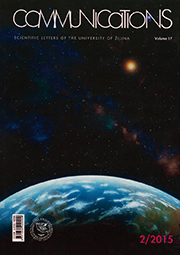Moral Implications of Augustine's Philosophical and Spiritual Journey in his Confessiones
Moral Implications of Augustine's Philosophical and Spiritual Journey in his Confessiones
Author(s): Michal Valčo, Roman Kralik, Lee BarrettSubject(s): Ethics / Practical Philosophy, Social Philosophy, Philosophy of Religion
Published by: Žilinská univerzita v Žilině
Keywords: Augustine; Neo-Platonism; Manichaeism; MacIntyre; Tradition; Confessions; Human Moral Identity; Kierkegaard;
Summary/Abstract: Aurelius Augustinus, though born to a Christian mother, had undergone a long and tedious spiritual journey in his search for truth and meaning. Youthful hedonism gave way to Skepticism, Manichaeism, and later on to Neo-Platonism as he searched for answers to some of the most pressing existential questions of mankind. Platonism, above all, proved to be (in its renewed, mystical form of Neo-Platonism) the most influential factor in his spiritual and intellectual journey. What we see in Augustine, in his personal struggle with philosophical ideas and religious cults that allowed him to become one of the most influential Christian philosopher of all times, is an interesting combination of a ‘MacIntyrean’ focus on the socially embodied reality of historical traditions and a ‘Kierkegaardian’ emphasis on the individual inner processing of the transcendental, the ‘inwardness’ of the human self, and the individual’s responsibility before God.
Journal: Komunikácie - vedecké listy Žilinskej univerzity v Žiline
- Issue Year: 17/2015
- Issue No: 2
- Page Range: 103-108
- Page Count: 6
- Language: English

